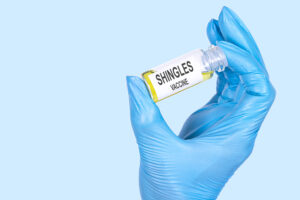The morning rush at my Middlesex County pharmacy always brings a parade of familiar faces—the construction worker grabbing antihistamines before heading to a job site, the teacher picking up her asthma inhaler, the commuter refilling blood pressure meds before catching the train to Manhattan.
After twenty years behind this counter, I’ve come to recognize the unique health patterns that define life in New Jersey.
What works for wellness in Arizona or Minnesota often doesn’t translate to our densely-packed, four-season, cross-highway state.
So I reached out to fellow pharmacists from Cape May to Mahwah to share what we’ve learned about keeping Garden State residents healthy.
Breathing in New Jersey:
A Complicated Relationship

Tips from Pharmacists
Our state’s position in the Northeast corridor creates respiratory challenges unlike anywhere else in the country.
The Parkway-to-Pollen Connection
When Joe, a regular at my pharmacy, complained that his asthma always worsened during his Turnpike commute, it wasn’t coincidence. The concentration of vehicles, industrial zones, and our state’s infamous humidity create a perfect respiratory storm. For New Jersey’s asthma sufferers—numbering over 600,000 adults and 167,000 children with higher rates in our urban centers—location matters tremendously.
I advise patients to consider their route to work as carefully as they consider their medications. One regular customer reduced her rescue inhaler use by 60% simply by adjusting her commute to avoid the Elizabeth industrial zone, even though it added seven minutes to her drive. The calculation of medication timing to match commute patterns has become something of a specialty in my practice.
The Jersey Allergy Calendar
“I never had allergies until I moved to New Jersey,” is a refrain I hear constantly. Our state’s dense vegetation, four distinct seasons, and high humidity create what I call the “perpetual allergy calendar.” While most states have defined allergy seasons, New Jerseyans face overlapping waves: tree pollen (particularly our abundant oak and maple) from March to May, grass through summer, ragweed from August to October, and even winter mold in our older housing stock.
This relentlessness requires a different approach. Rather than seasonal medication, many of my patients succeed with consistent, year-round antihistamine regimens, adjusting dosages based on our local pollen monitoring stations in Mount Laurel and Philadelphia. The pharmacists I consulted in South Jersey note that their coastal patients face different patterns than those inland, requiring individualized approaches even within our small state.
Heart Health Between Two Major Cities
Living between two of America’s most dynamic cities creates cardiovascular challenges unique to New Jersey residents.
The Commuter’s Cardiovascular Challenge
The PATH train doesn’t care about your medication schedule. Neither does NJ Transit. For the thousands of New Jerseyans commuting to Philadelphia or New York, maintaining consistent timing for cardiac medications becomes extraordinarily difficult. I’ve worked with patients to develop modified administration schedules that accommodate unpredictable transit delays and workday lengths.
One strategy that’s proven remarkably effective: I help patients identify their most consistent daily moment (often the first morning bathroom visit, rather than breakfast or bedtime which can shift with commute changes) and anchor their medication routine to that instead. These small adaptations to New Jersey’s commuter reality have measurably improved adherence rates among my patients.
Sodium and the Shore
For my colleagues practicing in shore communities, helping patients manage sodium intake presents unique challenges. The combination of boardwalk food culture and year-round seafood restaurants creates distinct patterns of cardiovascular risk. Rather than generic low-sodium advice, effective counseling acknowledges this reality.
One Atlantic County pharmacist developed a clever “Boardwalk Bypass” guide—a map showing which treats contain the least sodium and where to find them, allowing heart patients to still enjoy shore traditions without dangerous sodium spikes. This hyper-local approach proves far more effective than generic dietary guidance.
Metabolic Health in the Garden State
Diabetes management takes on particular dimensions in New Jersey’s diverse communities.
Navigating Cultural Food Landscapes
When a newly-diagnosed diabetic patient from Newark’s Ironbound district explained that abandoning Portuguese cuisine wasn’t an option, her words reflected a common challenge in our extraordinarily diverse state. New Jersey pharmacists have become adept at culturally-specific diabetes counseling that respects tradition while managing health.
I maintain a database of carbohydrate counts for specific dishes from our local Indian, Portuguese, Italian, and Latin American restaurants, helping patients make informed choices without abandoning cultural connections. This approach acknowledges what makes New Jersey special—our incredible diversity—while still promoting health.
The Seasonal Rhythm of Blood Sugar
The dramatic seasonal shifts in New Jersey create distinct patterns in blood glucose readings. Winter holidays bring predictable challenges, while summer’s bounty from our state’s farms (we are the Garden State, after all) creates opportunities.
Many of us now provide seasonally-adjusted counseling, intensifying support during challenging periods and connecting patients with local farm markets during New Jersey’s growing season. The “Jersey Fresh” program becomes a diabetes management tool when properly integrated into care plans.
Our state’s unique position—urban yet agricultural, diverse yet connected, caught between major cities yet with its own distinct identity—creates health challenges that require equally unique solutions. New Jersey pharmacists have developed these specialized approaches through years of observation and care. By adapting wellness strategies to match the reality of life in the Garden State, we help our neighbors not just survive here, but truly thrive.




